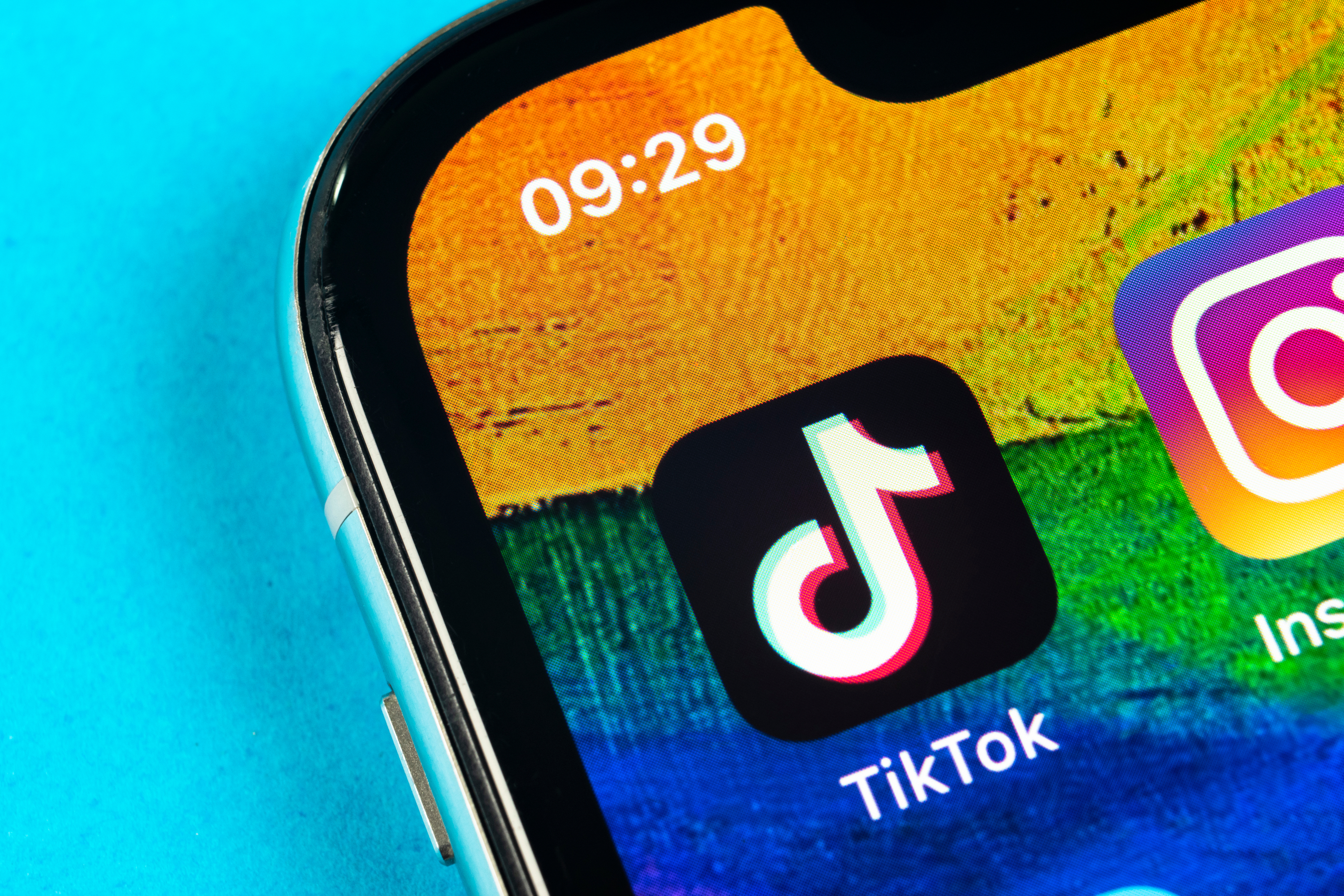TikTok ban bill just approved by House — what you need to know
Here's what happens next

TikTok may be one of the most popular social networks in the U.S., but many in the U.S. government see it as a risk to national security. And now the app is one step closer to being banned.
The U.S. House of Representatives today (March 13) overwhelmingly passed a bill that would make it illegal for TikTok to operate in the U.S. unless Chinese owner ByteDance sells its interest in the service. The bill moves to the U.S. Senate next, where its fate is uncertain. President Joe Biden has indicated he'd sign the bill if it's approved by Congress.
The House’s near-universal support for the bill was nothing if not surprising. Just 65 representatives voted against the ban, a group that was easily outnumbered by the 352 representatives who supported it. And its supporters were so sure that it would pass with ease that they issued a “suspension of rules” to swiftly move the bill to a vote.
Needless to say, that's a worrisome development for both TikTok and its multitude of users. But there are plenty of things to keep in mind about the possible ban and the many implications surrounding it.
Why is a TikTok ban under consideration?
Although TikTok and its parent company have strictly denied any involvement with the Chinese government, many U.S. lawmakers aren’t buying it.
ByteDance and TikTok are China-based companies. A 2022 BuzzFeed article found ByteDance had intentionally misled U.S. officials about the handling of American user data, which was supposed to be managed by an American security company. Instead, the article found, data was being managed Chinese engineers who may have had a relationship with the Chinese government.
Lawmakers have argued that the Chinese government could take that user data and put it to use in a variety of nefarious ways, potentially putting national security at risk.
Sign up to get the BEST of Tom's Guide direct to your inbox.
Get instant access to breaking news, the hottest reviews, great deals and helpful tips.
Additionally, TikTok has been accused of engaging in propaganda by some lawmakers, who further claim that the Chinese government can unilaterally affect the TikTok algorithm and influence what American users see.
What’s in the bill the House passed?
The House bill is called the Protecting Americans From Foreign Adversary Controlled Applications Act. The bill mentions TikTok specifically, but it doesn’t solely ban the social network. Instead, the bill would ban any app that the government has deemed to be controlled by a “foreign adversary.” The ban would go into effect 165 days after the bill becomes law, unless the government controlling the app divests its stakebefore then.
In order to “ban” an app, the bill requires that any app store operator, including Apple and Google, removes the offending app (in this case, TikTok) from their marketplaces by the Day 165.
What is TikTok saying?
TikTok has denied the allegations supporting a ban for some time, and it's now doubling down on that defense. In response to the House's latest move, TikTok called the House vote a mistake that could harm the U.S. economy.
“This process was secret and the bill was jammed through for one reason: It’s a ban based on zero evidence," TikTok's statement said. "We are hopeful that the Senate will consider the facts, listen to their constituents, and realize the impact on the economy, 7 million small businesses, and the 170 million Americans who use our service.”
TikTok has even used its own app to complain about the proposed ban, prompting some American users to contact their legislators with complaints. TikTok even went so far as to ask users for their ZIP code, providing them with their local representative’s name and phone number.
What happens now that the House has voted to ban TikTok?
Now that the bill has passed in the House, it moves to the Senate, where senators will have the opportunity to debate the legislation and at some point, bring it to a vote. It’s unclear how the bill will fare on the Senate floor, but considering how strongly it was supported in the House, there’s a good chance it’ll pass.
If the bill indeed passes the Senate, it will then makes its way to the White House for President Joe Biden to sign it into law.
What has President Biden said about the ban?
For his part, President Biden has been clear from the onset that if the bill makes its way to his desk, he will sign it, effectively banning TikTok in the U.S.
Former President Donald Trump, the presumptive Republican nominee in this year's presidential election, had also supported a ban, before reversing his stance. Trump told CNBC that a TikTok ban would give Meta an unfair advantage.
What happens if the TikTok ban goes into effect?
This is where things get interesting.
If the Senate passes the bill and the president signs it, technically, ByteDance would either need to divest its stake in TikTok or face a ban 165 days later. However, there are probably three ways this could play out.
In one case, TikTok accepts the ban and it’s no longer accessible in the U.S. — a highly unlikely scenario.
In another case, ByteDance sells its stake to a company that is more acceptable to the U.S. government. While ByteDance and the Chinese government are saying now that they don’t accept that possibility, the reality is, TikTok is worth a lot of money and ByteDance may want to cash out. It’s unclear who would buy TikTok, but this is a not-so-unlikely scenario.
The third and final scenario is a long and protracted standoff with the U.S. government. TikTok has the option to appeal the law and enter into a long court battle to keep access to its platform afloat. This is probably the most likely scenario and one that could ensure TikTok remains under Chinese control and is available in the U.S. for the foreseeable future.
More from Tom's Guide
Don Reisinger is CEO and founder of D2 Tech Agency. A communications strategist, consultant, and copywriter, Don has also written for many leading technology and business publications including CNET, Fortune Magazine, The New York Times, Forbes, Computerworld, Digital Trends, TechCrunch and Slashgear. He has also written for Tom's Guide for many years, contributing hundreds of articles on everything from phones to games to streaming and smart home.
